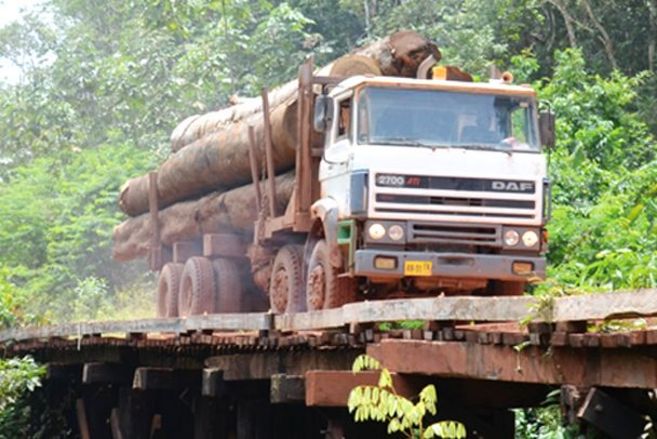List of Publications
- 0
Bösch M (2021) Faktoren, die illegalen Holzeinschlag begünstigen. Holz Zentralbl 147(37):652
- 1
Bösch M (2021) Institutional quality, economic development and illegal logging: a quantitative cross-national analysis. Eur J Forest Res 140:1049-1064, DOI:10.1007/s10342-021-01382-z
- 2
Bösch M (2021) Welche Faktoren begünstigen illegalen Holzeinschlag? Hamburg: Thünen-Institut für Internationale Waldwirtschaft und Forstökonomie, 1 p, Project Brief Thünen Inst 2021/19, DOI:10.3220/PB1625483994000
- 3
Bösch M (2021) Which factors are associated with illegal logging? Hamburg: Thünen Institute of International Forestry and Forest Economics, 1 p, Project Brief Thünen Inst 2021/19a, DOI:10.3220/PB1625484480000
Project
Analysis of illegal logging

Analysis of cross-national variables that influence illegal logging
Despite international efforts to combat illegal logging, the problem remains widespread. There has been little systematic research to analyze the causes of illegal logging.
Background and Objective
The goal of the project is to examine those factors that are assumed in the scientific literature to have an influence on illegal logging.
Target Group
Policy, Science
Approach
We constructed a regression model to empirically clarify the research question. This model can make statements about the relationship between the occurrence of illegal logging and appropriate economic and institutional explanatory variables
Data and Methods
Data are taken from the literature or publicly available databases (e.g. FAO, World Bank). Logistic regression analysis is used as the methodology.
Our Research Questions
-Is there evidence on why some countries are affected by illegal logging and others are not?
-Are there country-specific factors associated with illegal logging?
-Which countries are more susceptible to illegal logging in terms of underlying conditions?
Results
The results show that, in addition to physical-geographical characteristics, a number of factors related to the degree and speed of a country's economic-institutional development are significantly associated with illegal logging. These include, for example, economic growth, the degree of government accountability, the rule of law, and the presence of corruption.
- Project brief 2021/19a Matthias Bösch
DOI:10.3220/PB1625484480000
Thünen-Contact

Involved Thünen-Partners
Duration
1.2019 - 12.2020
More Information
Project status:
finished







